Love and Collectivization
What shines brighter in the wonderful month of August than A Midsummer Day's Smile?
Before films like “Love at Zero Degrees” (1964) or “The Secret of Bacchus” (1984), which defined Geo Saizescu as a witty popular film director, he directed “A Midsummer Day's Smile”, a CAP (Collective Agricultural Production)-themed comedy with a strong proletcultist air and inventive spirit.
Făniță (Sebastian Papaiani) had been away from his village in Oltenia for about four years, traveling all over the country; to Câmpina, Mediaș, and even Bucharest. However, when he returned to the village, many has changed. Society, even his small hometown, has progressed. Now they have a bus, no more horse-drawn carriages, they have agricultural machinery, telegraphs, even motorcycles, but perhaps most importantly, as the film seems to suggest, they have collectivization.

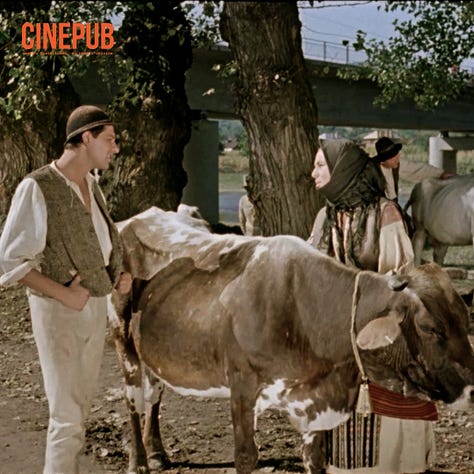
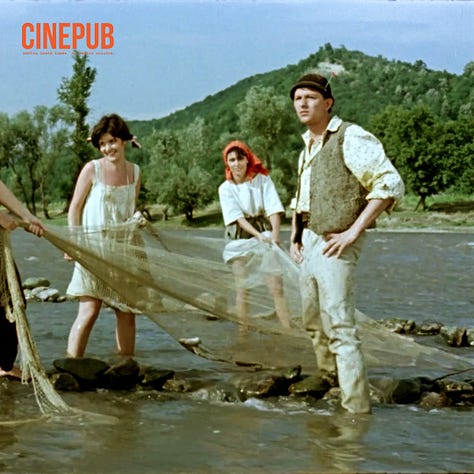


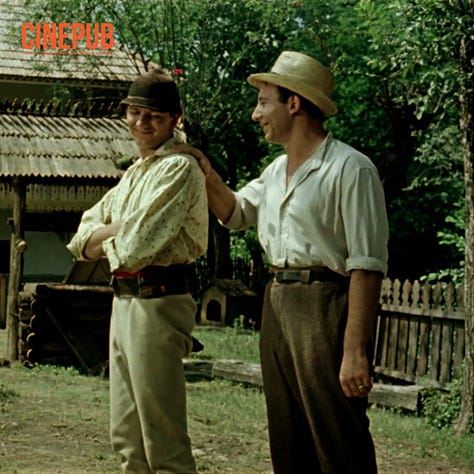
Although Făniță wants to work, he eagerly avoids the villagers' offers. He had discovered the thrill of personal initiatives — in other words, he had embraced individualism. "Do you think you can live without the village?", the locals keep asking him, smiling, waiting. The peasants, his own family, even the girl who likes him, live in an unshakable, utopian security. Neither Făniță's anxieties nor his ambitions for wealth affect them. They would rather see him integrated.
Făniță is a merchant, or as we would say today, an entrepreneur. Where there is a field of flowers, he sees a field of beehives; where there is a market, he sees a donut stand; where there is a road, he sees a carriage to carry people. The villagers keep trying to get him to bring these ideas to the collective agricultural household, but he refuses. Făniță is struck with the dream of capital, and the film insists that his ambition, while theoretically possible in communism, as it is not illegal, is still somewhat impossible. In his pursuit of business, Făniță manages to alienate both the villagers and Liorica (Florina Luican), the girl who had patiently waited for him while he was away.
At a certain point, the cooperative villagers become as annoying as sales agents who, no matter what you tell them, repeat like a mantra, "Why don't you want to be one of us?" But Făniță keeps refusing. This, far from making Făniță an undesirable element, evokes empathy towards him. He is not ill-intentioned, just foolish. The film's narrative unfolds as an example of "this is how it's done," trying to instill a unified mentality through a story of "love and turmoil."
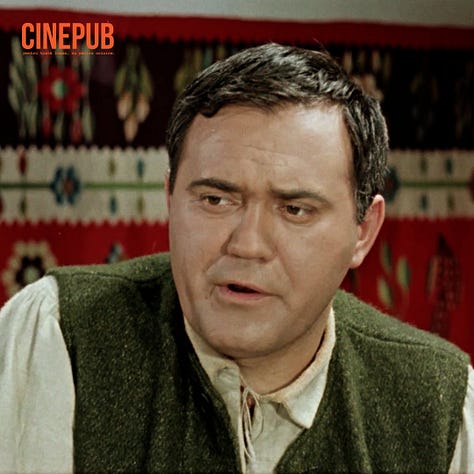

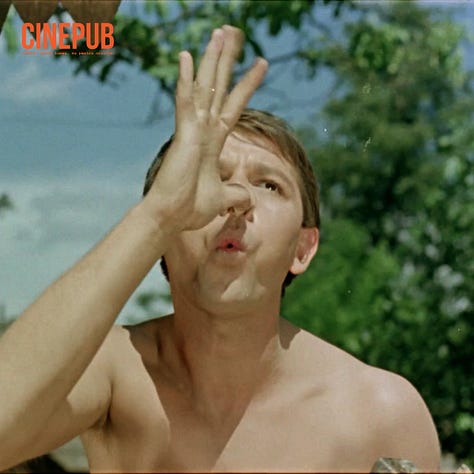
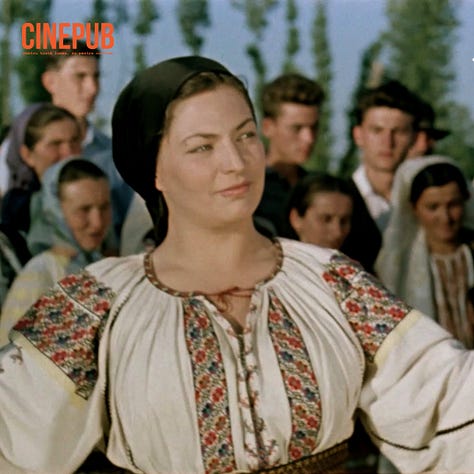
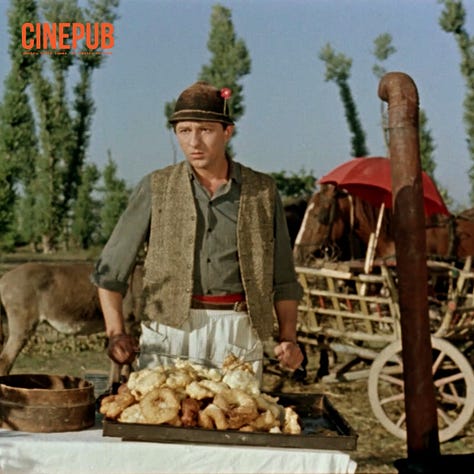
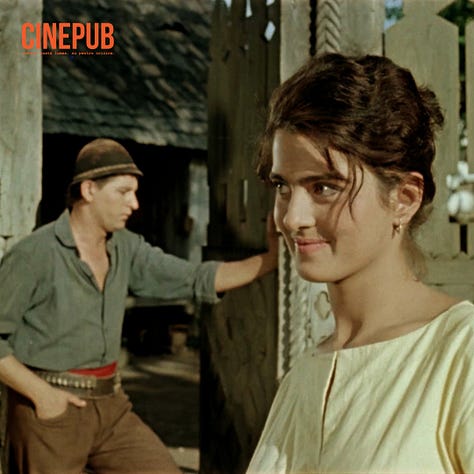
What is remarkable about these films from the socialist era is that they clearly trace the points of evolution of socialist society over time. For example, Our Director (1955, dir. Jean Georgescu), illustrates the major problem of bureaucracy slowing down the socialist progress.; In The Eruption (1957, dir. Liviu Ciulei), we deal with a story of maintaining morale and forcefully completing the mission of modernizing the state; or in A Midsummer Day's Smile, where, in the full post-collectivization stage, the idea is pushed that the era of individual work is over forever, and that the future belongs only to those who accept the collective work. Hence its apparently relaxed and welcoming tone.
(Emil Vasilache, cinepub.ro)
This week's premiere: A Midsummer Day's Smile by Geo Saizescu, Thursday, August 1st, at 9:00 p.m EEST, on CINEPUB.RO
Cinepub is the one and only, legally operating and free of charge, AVoD platform, dedicated to the Romanian cinema: independent, contemporary, or classic. Our comittment to remain “free” means hundreds of monthly hours of volunteer work of a (very) small team of passionate individuals.
Your donation can help us cover some of the costs of securing some distribution rights, covering the basic costs or just keeping the platform updated; in a nutshell, to survive! If you like what we do, if you read what we write, if you watch the films we show, consider supporting us. We need your help. Thank you!





